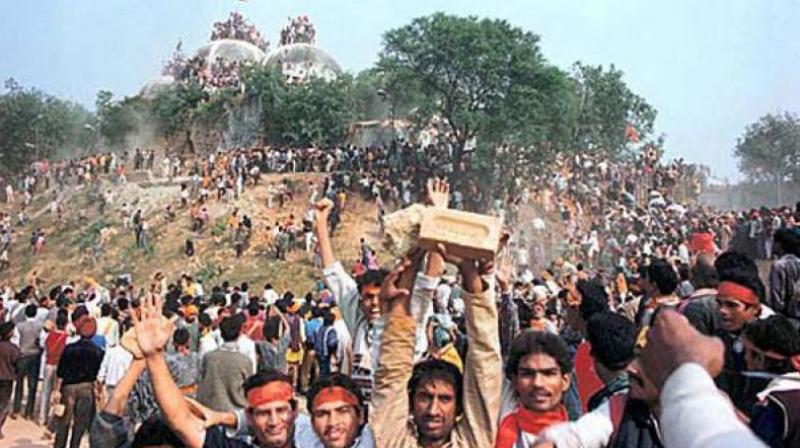Shia board offers 1/3rd of Ayodhya land for temple
The Shia Board said that to ensure peace, the masjid could be located in a Muslim-dominated area.

New Delhi: The Central Shia Waqf Board on Friday informed the Supreme Court that it was the real claimant of the one-third Muslim share of land in the disputed structure at Ayodhya as the Babri Masjid was built by Mir Baqi, a Shia. Senior counsel S.N. Singh, appearing for the Shia Board in the Supreme Court, said, “We want to donate one-third land granted to Muslims by the Allahabad high court to Hindus for building the Ram temple. For the unity, integrity, peace and harmony of this great country, the Shia Waqf Board is in favour of donating the Muslim share of land to the Hindus for Ram temple.”
In a brief affidavit, the Shia board said a mosque could be built in a Muslim-dominated area at a reasonable distance from the revered place of birth of Lord Ram in Ayodhya. Refuting the claim of Sunnis, the Shia Waqf Board said the Sunni Board was under the dominant control of Sunni hardliners, fanatics and non-believers in peaceful co-existence.
It said the Shia Board felt that closeness of the places of worship — the masjid and mandir of the two litigating communities — should be avoided, more so as the use of loudspeakers tends to disturb religious observances by others, often leading to conflicts.
The Shia Board said that to ensure peace, the masjid could be located in a Muslim-dominated area at a reasonable distance from the most “revered place of birth of Maryada Purushottam Sri Ram”. The Shia Board firmly believes its efforts would definitely bring about an amicable settlement of the dispute and enable Muslims and Hindus to live in peace and harmony. On September 30, 2010, the Allahabad High Court in a landmark verdict had said that the 2.77 acres (1.12 ha) of the Ayodhya land be divided into three parts — with one-third going to Ram Lalla, represented by the Hindu Mahasabha, for building of the Ram temple, one-third to the Sunni Waqf Board and the remaining one-third to a Hindu religious denomination, the Nirmohi Akhara.
In a statement issued in Lucknow, Shia Waqf Board chairman Wasim Rizvi asked the Sunni Waqf Board to give up its claim on the Shia property in Ayodhya and instead play a positive role in amicably resolving the temple-mosque disputes in Kashi and Mathura. “The Sunni Waqf Board has the right to put its views on the temple-mosque dispute in Kashi and Mathura but has no right with regard to Ayodhya... It need not interfere in the issues related to the Shia Waqf Board,” he said.
He said the Shia Waqf Board had enough documents to prove that the mosque in Ayodhya was a Shia one and had presented them to the Supreme Court, but some maulvis and mullahs were sore over this. Appearing for Mr M. Siddiq, the main petitioner, senior counsel Rajeev Dhavan said in the Supreme Court that the Shia Waqf Board had no locus standi in the case.
“Just as the Taliban destroyed the Bamiyan (Buddhas), the Hindu Taliban destroyed the Babri Mosque,” he said, adding that Hindus can’t claim any right to worship in that place after such a demolition. He reiterated his plea to refer the title dispute appeals for adjudication by a five-judge Constitution Bench.

